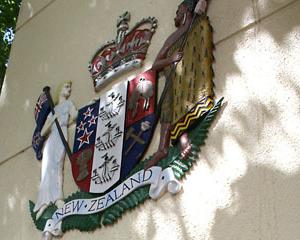Mr Hyslop, who was involved in a partnership with Dunedin businessman Lindsay Clark to redevelop Cargill House into the hotel in 2000-02, said he had had a successful outcome from a High Court proceeding he issued against Mr Clark earlier this month.
The partnership between the two men went sour in 2002 over money and the courts have been involved ever since.
Justice Lester Chisholm's decision, received by the Otago Daily Times last week, said Mr Hyslop was entitled to a share of profits attributable to the partnership interest in various projects, including Cargill House, now known as Scenic Circle Dunedin City Hotel.
Mr Hyslop said the decision has granted his company, Libra Developments Ltd, a 25% beneficial interest in the Scenic Circle Dunedin City Hotel.
In his decision, Justice Chisholm said in July 2001, long before the partnership was dissolved, the plan to develop Cargill House was initiated.
The project would not have got off the ground but for Mr Hyslop, and he played a key role at each stage of the development.
Justice Chisholm said it was obvious that the involvement of Mr Hyslop and Libra Developments Ltd would have continued if Mr Clark had not taken unilateral action to exclude the partnership.
Mr Clark breached the partnership agreement and that breach constituted a breach of fiduciary duty, the judgement said.
Mr Hyslop won a High Court case in 2004, claiming he had been squeezed out of the partnership, but that was appealed, unsuccessfully, by Mr Clark to the Court of Appeal and Supreme Court.
Mr Hyslop went back to the High Court this month to enable the economic implications of the judgement to be determined.
Justice Chisholm granted Mr Hyslop particular discovery, forcing Mr Clark to hand over financial accounts relating to the partnership's dealings involving the hotel, and taking of accounts, so accounts will be handed over to an independent accountant who will calculate Mr Hyslop's share.
The judgements in both the High Court and Supreme Court made it clear Mr Clark was going to have to account for profits arising from the Cargill House project, Justice Chisholm said.
Mr Hyslop said it was a brilliant result and he felt Mr Clark would get a short shift if he went back to the Court of Appeal.
"It's been six years and it's cost an awful lot, not only in money, but in human terms."
His reputation had been damaged. It had never crossed his mind to give up, though it was disappointing to fall out over money.
Part of him felt sorry for Mr Clark.
Mr Hyslop said he expected to receive more than a million dollars after the court order, but said legal costs were about $300,000.
He said the awarding of costs to him, thought to be about $20,000, showed how much the court disagreed with Mr Clark's actions.
Mr Hyslop's counsel, Peter Churchman, said the judgement showed the system did work.
It was the first time in 30 years of practising he had received full indemnity in costs.
Mr Clark and his counsel Len Andersen declined to comment.











